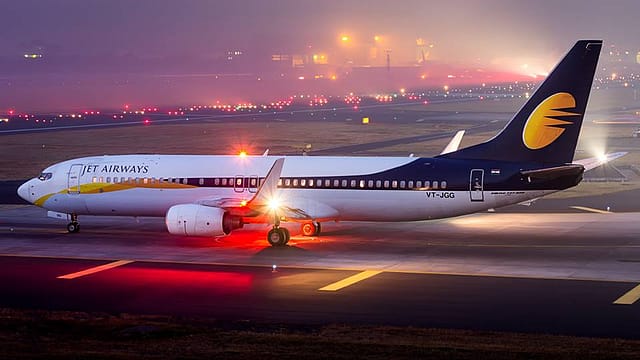Loss-making Etihad submits bid for Jet Airways with “conditions”
ADVERTISEMENT

Abu Dhabi’s Etihad Airways, which reported a loss of $1.28 billion last calendar, has submitted a bid for the ailing Jet Airways. Etihad Airways already owns a 24% stake in the two-decade-old Indian airline, having invested $380 million in 2013.
Ironically, over the last five months Etihad Airways has been pussy-footing its investment commitments in to Jet Airways with conditions that weren’t acceptable to a consortium of Indian banks, led by the country’s largest lender State Bank of India. While the banking consortium own a majority stake in Jet Airways, it refused to infuse additional funds forcing the airline to suspend operations from April 17.
“Etihad Airways today confirmed its interest to re-invest in a minority stake in India’s Jet Airways, subject to conditions,” said a spokesperson of Etihad Airways. “Etihad re-emphasises that it cannot be expected to be the sole investor, and that, amongst other requirements, additional suitable investors would need to provide the majority of Jet Airways’ required recapitalisation.”
As per Indian laws, a foreign airline like Etihad Airways can only own a maximum 49% stake in an Indian airline, paving the way for other Indian investors. The Etihad Airways spokesperson didn’t answer queries as to who would be its Indian partner in its bid for Jet Airways.
Given Etihad Airways’ poor financial health — the airline has accumulated losses of over $4 billion since 2016 — its renewed interest in Jet Airways, even if for a “minority stake”, comes as a surprise. As Harsh Vardhan, founder, Starair Consulting told Fortune India in a recent interview, “Unless there is someone with a $3 billion war chest I don’t think there is a possibility of reviving Jet Airways.” According to the financial newspaper BusinessLine, “Jet Airways’ gross loan and unpaid interest towards its domestic and international lenders may amount to Rs 11,261 crore.”
Vardhan, the former chief executive of the erstwhile government-owned airline Vayudoot, believes that the path to recovery for Jet Airways is a daunting one. “Only institutional liabilities can be negotiated, but other liabilities [relating to vendors, passengers and staff] have to be paid upfront. Then there is a cost of revival,” he explains. “If it does start operations, each sector [route flown] will take at least six to eight months to stabilise.”
Currently, the domestic routes of Jet Airways have been reallocated to other Indian airlines for a period of three-months. The key beneficiary of this has been low-cost airline SpiceJet, which announced 77 new flights since April. These include 48 flights connecting Mumbai, 16 flights connecting Delhi and eight flights between Mumbai and Delhi. Jet Airways’ aircraft, too, have been leased to rival carriers. Furthermore, Jet Airways’ staff are seeking job opportunities at other airlines.
So, while Etihad Airways has submitted its bid, does it really have the appetite to turnaround Jet Airways? Its failed investments in airlines such as Air Berlin and Alitalia isn’t a playbook to go by for the revival of Jet Airways. But Etihad Airways spokesperson said, “Etihad has been working consistently with key stakeholders in India over the past 15 months to help find a solution which would ensure Jet’s return as a viable and competitive Indian airline, and continues to do so.